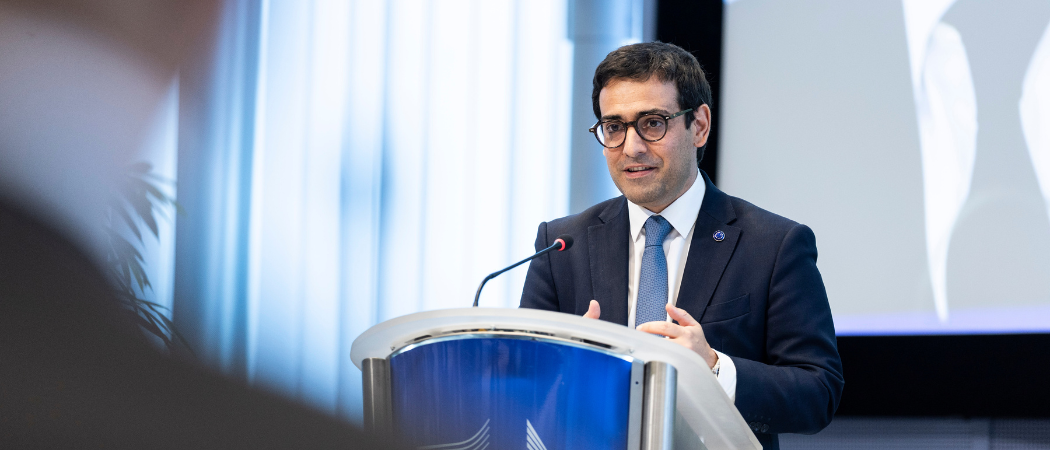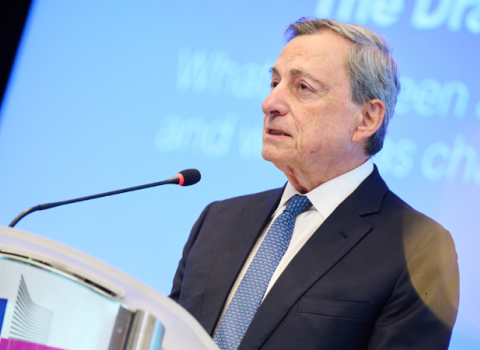Commission vice-president signals that FP10 is highly likely to be subsumed into the new Competitiveness Fund

Stéphane Séjourné, executive vice-president for prosperity and industrial strategy, speaking at an event on European competitiveness organised by the European Commission. Photo credits: Lukasz Kobus / European Union
The fate of the next Framework Programme seems to have been sealed. After months of speculation around whether FP10 would be swallowed by the European Commission’s new Competitiveness Fund, Stéphane Séjourné, executive vice-president for prosperity and industrial strategy, has announced that the mega-fund will include research and innovation.
“Funding for greater competitiveness is fragmented,” Séjourné said at an event organised by the EU executive on May 12. “We must regroup it into a single investment capacity in order to invest massively in strategic sectors from artificial intelligence to space to clean technologies to biotechnologies, including especially, I should perhaps say, innovation and research as well.”
While that “perhaps” might sound less than certain, it is clear from other parts of Séjourné’s speech that research and innovation are part of the concept for the fund. It would be, he said, a “new, coherent architecture that follows the entire life of companies from research to industrial production.”
Séjourné is in charge of developing the future fund, alongside Piotr Serafin, the budget commissioner.
He went on to explain that the Competitiveness Fund would rely on subsidies, loans, equity and the public market. But “above all, we have the obligation to mobilise private financing,” he added.
To this end, it will incorporate or even extend the InvestEU initiative which, Séjourné said, had mobilised nearly €300 billion in investment by the end of 2024, of which two thirds came from the private sector.
Related articles
- Parliament calls for bold investment in research and innovation beyond 2027
- Budget first, impact later: academic community reacts to Horizon Europe analysis
Speaking at the same event, Polish deputy finance minister Paweł Karbownik underlined the importance of evaluating the risks that private investors could take in financing the critical technologies that the Competitiveness Fund seeks to bolster.
“It’s not a matter of how much money. We have money,” he said. “The problem is that money is flowing elsewhere because we don’t have a proper framework.” Instead, he added, the question should be: “where is the risk that we should somehow compensate for and [where can we] step in at the EU or national level?”
Karbownik also emphasised the need to align financing instruments at both the European and national levels.





 A unique international forum for public research organisations and companies to connect their external engagement with strategic interests around their R&D system.
A unique international forum for public research organisations and companies to connect their external engagement with strategic interests around their R&D system.